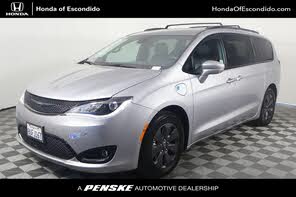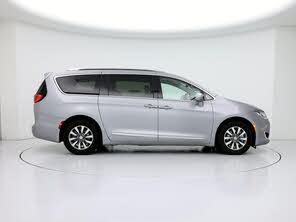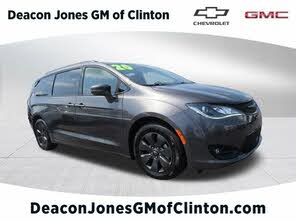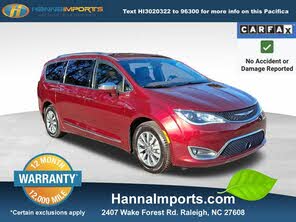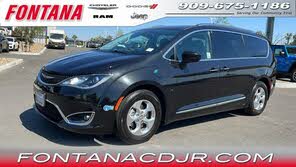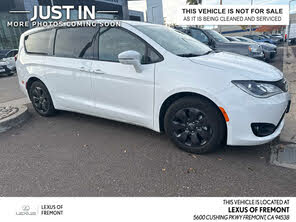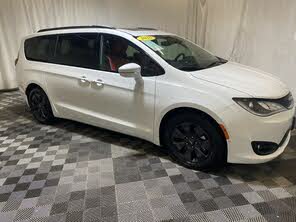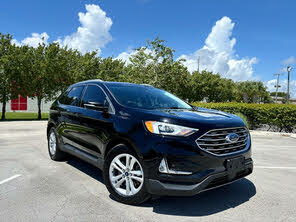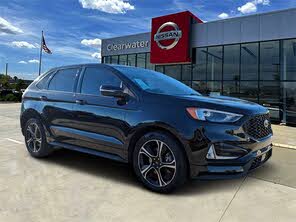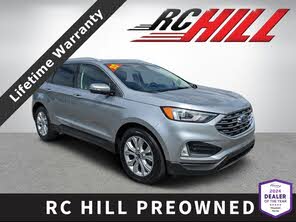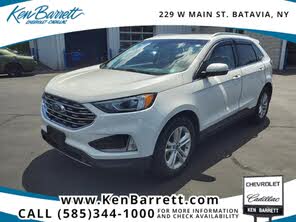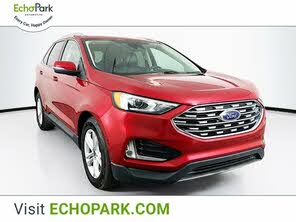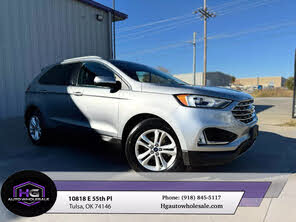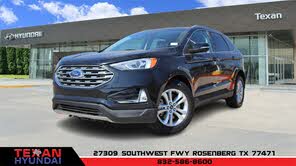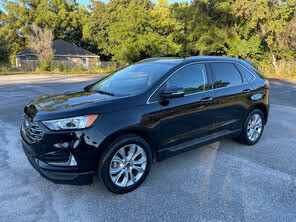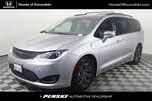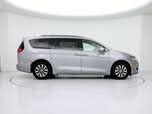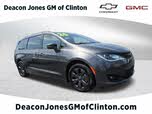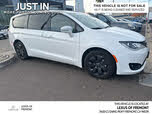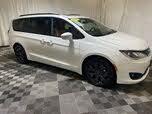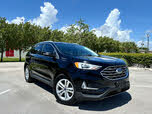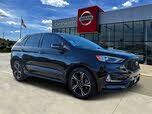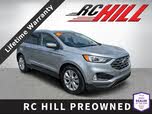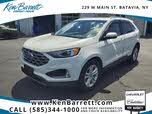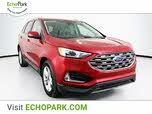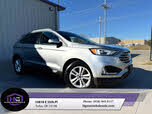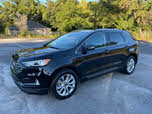2020 Chrysler Pacifica Hybrid vs 2020 Ford Edge
Overview | |
MSRP$39,995 | MSRP$31,100 |
Average price$26,689 | Average price$20,595 |
Listings80 | Listings1518 |
Ratings & Reviews | |
User Reviews | User Reviews |
Expert reviews | Expert reviews8.0 out of 10 |
Pros
| |
2020 Chrysler Pacifica Hybrid Reviews Summary | |
2020 Ford Edge Reviews SummaryThe Ford Edge isn’t exactly memorable, which isn�’t a bad thing. It isn’t a good thing either. Cars can be remembered for attractive design, fun driving dynamics, or being a solid value. They can also be remembered in a negative light for a polarizing design, poor build quality, or being unsafe to the point of scandal. But the 2020 Ford Edge is just... there. It is a midsize two-row SUV that doesn’t offend, but also doesn’t “wow.” But just as critically, the Edge is getting long in the tooth. In the SUV segment, constant iteration is necessary for survival, and the Edge is in need of a redesign. But in lieu of new blood, Ford has done well to keep the Edge fitted with the latest infotainment and safety technology. It also offers a performance variant, called the Edge ST. This is something that you won’t find in the Edge’s competitors, the Nissan Murano and Honda Passport. But is it enough to keep the Edge relevant against its more contemporary rivals? Read on to find out. | |
No video found | No video found |
Popular Features & Specs | |
Engine3.6L 260 hp V6 Hybrid | Engine2.0L 250 hp I4 |
Drive TrainFWD | Drive TrainFWD |
Seating Capacity7 | Seating Capacity5 |
Horsepower | Horsepower250 hp @ 5500 rpm |
EV Battery Capacity16 kWh | EV Battery Capacity |
MPG City29 | MPG City21 |
MPG Highway30 | MPG Highway29 |
Battery Charge Time (240V)2 hours | Battery Charge Time (240V) |
Engine | |
Engine Name3.6L 260 hp V6 Hybrid | Engine Name2.0L 250 hp I4 |
Torque | Torque280 lb-ft @ 3000 rpm |
Horsepower | Horsepower250 hp @ 5500 rpm |
Battery Charge Time (240V)2 hours | Battery Charge Time (240V) |
DrivetrainFWD | DrivetrainFWD |
Fuel Economy | |
EV Battery Capacity16 kWh | EV Battery Capacity |
MPG City29 | MPG City21 |
MPG Highway30 | MPG Highway29 |
Interior | |
Seating Capacity7 | Seating Capacity5 |
Safety | |
Front Crash Overall4 | Front Crash Overall5 |
Side Crash Overall5 | Side Crash Overall5 |
Dimensions & Capacity | |
Cargo Space32.3 cu ft | Cargo Space39.2 cu ft |
Curb Weight4987 lbs | Curb Weight4027 lbs |
Height69.9 in | Height68.3 in |
Length204.3 in | Length188.8 in |
Width90.4 in | Width85.8 in |
Wheelbase121.6 in | Wheelbase112.2 in |
Maximum Payload1313 lbs | Maximum Payload1243 lbs |
Number of doors4 | Number of doors4 |
Maximum Towing Capacity | Maximum Towing Capacity1500 lbs |
Overview | ||
MSRP | $39,995 | $31,100 |
Average price | $26,689 | $20,595 |
Listings | ||
Ratings & Reviews | ||
User reviews | ||
Expert reviews | 8.0 out of 10Read full review | |
Pros & cons | Pros
| |
Summary | The Ford Edge isn’t exactly memorable, which isn’t a bad thing. It isn’t a good thing either. Cars can be remembered for attractive design, fun driving dynamics, or being a solid value. They can also be remembered in a negative light for a polarizing design, poor build quality, or being unsafe to the point of scandal. But the 2020 Ford Edge is just... there. It is a midsize two-row SUV that doesn’t offend, but also doesn’t “wow.” But just as critically, the Edge is getting long in the tooth. In the SUV segment, constant iteration is necessary for survival, and the Edge is in need of a redesign. But in lieu of new blood, Ford has done well to keep the Edge fitted with the latest infotainment and safety technology. It also offers a performance variant, called the Edge ST. This is something that you won’t find in the Edge’s competitors, the Nissan Murano and Honda Passport. But is it enough to keep the Edge relevant against its more contemporary rivals? Read on to find out. | |
Video | No video found | No video found |
Popular Features & Specs | ||
Engine | 3.6L 260 hp V6 Hybrid | 2.0L 250 hp I4 |
Drive Train | FWD | FWD |
Seating Capacity | 7 | 5 |
Horsepower | 250 hp @ 5500 rpm | |
EV Battery Capacity | 16 kWh | |
MPG City | 29 | 21 |
MPG Highway | 30 | 29 |
Battery Charge Time (240V) | 2 hours | |
Engine | ||
Engine Name | 3.6L 260 hp V6 Hybrid | 2.0L 250 hp I4 |
Torque | 280 lb-ft @ 3000 rpm | |
Horsepower | 250 hp @ 5500 rpm | |
Battery Charge Time (240V) | 2 hours | |
Drivetrain | FWD | FWD |
Fuel Economy | ||
EV Battery Capacity | 16 kWh | |
MPG City | 29 | 21 |
MPG Highway | 30 | 29 |
Interior | ||
Seating Capacity | 7 | 5 |
Safety | ||
Front Crash Overall | 4 | 5 |
Side Crash Overall | 5 | 5 |
Dimensions & Capacity | ||
Cargo Space | 32.3 cu ft | 39.2 cu ft |
Curb Weight | 4987 lbs | 4027 lbs |
Height | 69.9 in | 68.3 in |
Length | 204.3 in | 188.8 in |
Width | 90.4 in | 85.8 in |
Wheelbase | 121.6 in | 112.2 in |
Maximum Payload | 1313 lbs | 1243 lbs |
Number of doors | 4 | 4 |
Maximum Towing Capacity | 1500 lbs | |

By: CarGurus + AI
At CarGurus, our team of experienced automotive writers remain at the heart of our content operation, conducting hands-on car tests and writing insightful guides that are backed by years of industry experience. To complement this, we are harnessing AI to make our content offering more diverse and more helpful to shoppers than ever. To achieve this, our AI systems are based exclusively on CarGurus content, ratings and data, so that what we produce is both unique to CarGurus, and uniquely helpful to car shoppers.


